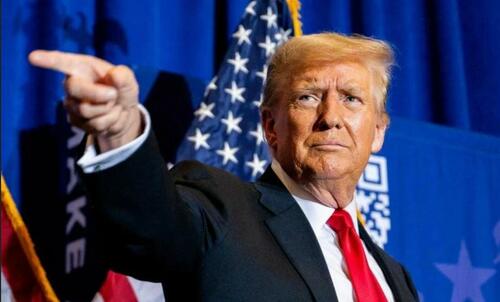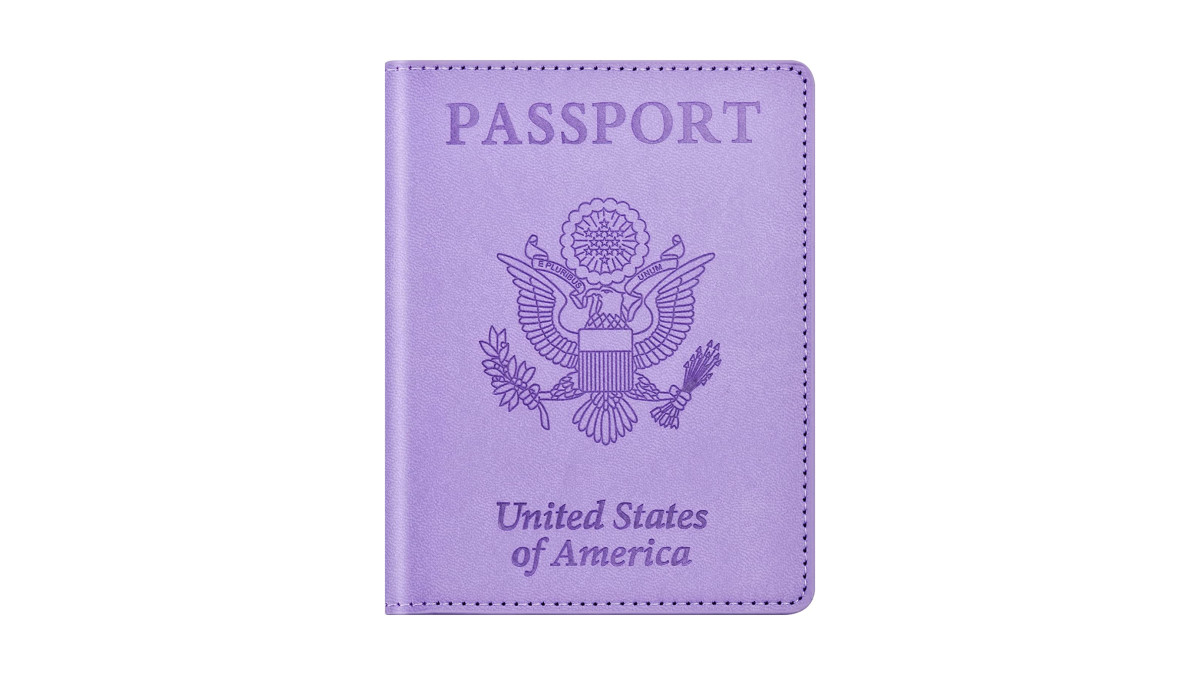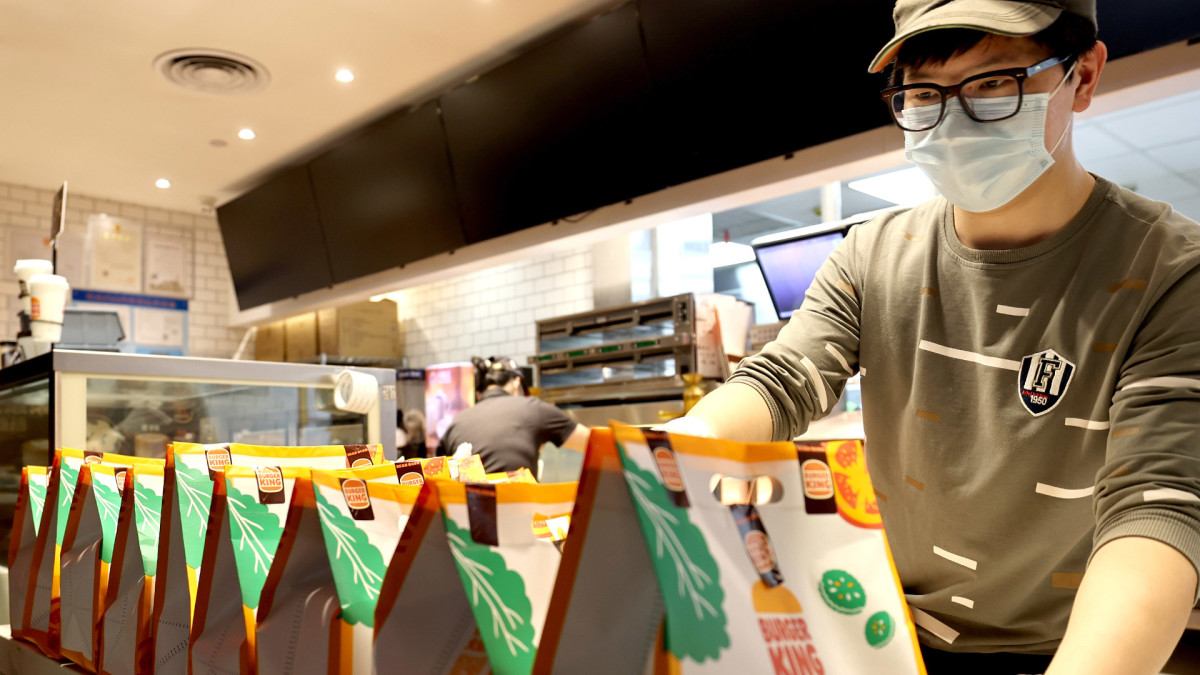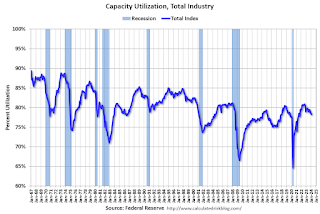Uncategorized
Trump Vows To “Never Allow” A Central Bank Digital Currency
Trump Vows To "Never Allow" A Central Bank Digital Currency
Former President Donald Trump on Wednesday vowed to never allow the use of a Central…

Former President Donald Trump on Wednesday vowed to never allow the use of a Central Bank Digital Currency (CBDC), as it would "give the government absolute control over your money."
"This would be a dangerous threat to freedom – and I will stop it from coming to America. We are also going to put in place strong protections to stop banks and regulators from trying to de-bank you for your political beliefs. That will never happen while I am your president," Trump told a crowd in Portsmouth, New Hampshire - as first reported by The National Pulse.
Trump says he will prevent implementation of Central Bank Digital Currencies (CBDC) pic.twitter.com/vheJDn2HBg
— Bertman (@manofbert) January 18, 2024
Trump's comments come hours after Rep. Jim Jordan (R-OH) revealed that federal agencies have been flagging financial transactions using politically sensitive words such as "MAGA" and "Trump" in yet another egregious example of the establishment targeting political rivals.
As we've reported for years, CBDCs - touted by globalists such as French Central Bank deputy governor Denis Beau as "the catalyst for improving cross-border payments by enabling the build-up of a new international monetary system" - are in fact the ultimate tools of oppression.
Even Fed Governors know 'this way lies danger':
"In thinking about the implications of CBDC and privacy, we must also consider the central role that money plays in our daily lives, and the risk that a CBDC would provide not only a window into, but potentially an impediment to, the freedom Americans enjoy in choosing how money and resources are used and invested," Federal Reserve Governor Michelle Bowman told a Harvard Law School Program on International Financial Systems last year.
Central bank digital currencies are part of a broader "war on cash."
A cashless society is sold on the promise of providing a safe, convenient, and more secure alternative to physical cash. We’re also told it will help stop dangerous criminals who like the intractability of cash.
But there is a darker side – the promise of control.
The elimination of cash creates the potential for the government to track and control consumer spending. Digital economies would also make it even easier for central banks to engage in manipulative monetary policies such as negative interest rates.
But they seem to be an inevitability, as according to data from the Atlantic Council CBDC Tracker, 130 countries - representing over 98% of global gross domestic product - are exploring or developing CBDCs, marking an outsized increase from just a few years ago.

They're even starting to experiment with them for international settlement... In November, Zurich issued a CHF 100 million ($113m) digital bond via the SIX Digital Exchange - the most distinctive aspect of which is that it settles using a wholesale central bank digital currency (wholesale CBDC) issued by the Swiss National Bank (SNB).
Resistance!
Last April, Democratic Presidential candidate Robert F. Kennedy Jr. (who is now working to create a new political party to qualify for the ballot in various states), vehemently opposed the Fed's announcement of a "FedNow" CBDC, calling it a "slippery slope to financial slavery and political tyranny."
"While cash transactions are anonymous, a #CBDC will allow the government to surveil all our private financial affairs. The central bank will have the power to enforce dollar limits on our transactions restricting where you can send money, where you can spend it, and when money expires," he wrote on X. "A CBDC tied to digital ID and social credit score will allow the government to freeze your assets or limit your spending to approved vendors if you fail to comply with arbitrary diktats, i.e. vaccine mandates."
The Fed just announced it will introduce its “FedNow” Central Bank Digital Currency (CBDC) in July. CBDCs grease the slippery slope to financial slavery and political tyranny.
— Robert F. Kennedy Jr (@RobertKennedyJr) April 5, 2023
While cash transactions are anonymous, a #CBDC will allow the government to surveil all our private…
In July, Kennedy promised to back the US Dollar with Bitcoin if he's elected president.
Also in July, Florida Governor Ron DeSantis (R) vowed to kill FedCoin on "day one" of his presidency, telling Tucker Carlson at the Family Leadership Summit in Iowa, "If I am the president, on day one, we will nix central bank digital currency. Done. Dead. Not happening in this country," adding "They want to get rid of cash. They want no cryptocurrency. They want [CBDCs] to be the sole form of legal tender. It will allow them to prohibit 'undesirable purchases' like fuel and ammunition."
More recently, several states opposed to CBDC have launched bills which would prohibit classifying digital currency as money.
If successful, Utah, South Carolina, South Dakota and Tennessee would become the first states to exclude CBDC as a medium exchange - potentially creating significant roadblocks to CBDC in the United States.
Finally, for those still unsure, we don’t need to look as far as China to understand the implications here in the West. As Laura Dodsworth wrote in October of the dystopian nature of CBDCs, via The Brownstone Institute:
In 2019, Mastercard and Doconomy launched a credit card with a carbon footprint calculator that can switch off your spending when you reach your carbon max. This functionality is voluntary, but it could be an automatic aspect of a CBDC.
Tom Mutton, a director at the Bank of England, said that the Government would be required to make the final decision on whether a UK CBDC should be programmable. Sir Jon Cunliffe, a deputy Governor at the Bank, said:
"You could think of giving your children pocket money, but programming the money so that it couldn’t be used for sweets. There is a whole range of things that money could do, programmable money, which we cannot do with the current technology."
As this quote reveals, CBDCs won’t just alter our relationship with money but with government. Governments around the world have shown increasingly authoritarian tendencies during the management of the Covid pandemic, and more recently to discourage driving in cities. Behavioural science has been leveraged to manipulate, incentivise and coerce us into behaving as model citizens. Do we want to negotiate with Daddy State to be allowed to spend our ‘pocket money’ as we wish?
An account-based CBDC would give the government enormous power over your money as your identity is connected to the money. A 2020 Bank of England discussion paper gave examples of programmability, for example that smart cars could automatically pay for fuel directly at the dispensing pump, with automated taxation and charitable donations at point of sale.
That all sounds very convenient. But politicians pushing Net Zero goals on an unwilling population could choose to go a step further. If you insist on keeping your private car, despite the inconvenient 20 MPH speed limits, the ULEZ and congestion charges, and the Low Traffic Neighbourhood barriers, they could simply dictate a maximum fuel spend in a given time period. Just ten of your Britcoins on petrol this month, Sir, no more driving for you.
Interestingly, we have not heard from the Biden administration with regard their support (or lack thereof) of CDBCs. Given their recent authoritarian over-steps, it shouldn't be too hard to guess which side of the 'more centralized power and control' vs 'freedom and personal sovereignty' fence they might come down on.
Uncategorized
One city held a mass passport-getting event
A New Orleans congressman organized a way for people to apply for their passports en masse.

While the number of Americans who do not have a passport has dropped steadily from more than 80% in 1990 to just over 50% now, a lack of knowledge around passport requirements still keeps a significant portion of the population away from international travel.
Over the four years that passed since the start of covid-19, passport offices have also been dealing with significant backlog due to the high numbers of people who were looking to get a passport post-pandemic.
Related: Here is why it is (still) taking forever to get a passport
To deal with these concurrent issues, the U.S. State Department recently held a mass passport-getting event in the city of New Orleans. Called the "Passport Acceptance Event," the gathering was held at a local auditorium and invited residents of Louisiana’s 2nd Congressional District to complete a passport application on-site with the help of staff and government workers.
'Come apply for your passport, no appointment is required'
"Hey #LA02," Rep. Troy A. Carter Sr. (D-LA), whose office co-hosted the event alongside the city of New Orleans, wrote to his followers on Instagram (META) . "My office is providing passport services at our #PassportAcceptance event. Come apply for your passport, no appointment is required."
More Travel:
- A new travel term is taking over the internet (and reaching airlines and hotels)
- The 10 best airline stocks to buy now
- Airlines see a new kind of traveler at the front of the plane
The event was held on March 14 from 10 a.m. to 1 p.m. While it was designed for those who are already eligible for U.S. citizenship rather than as a way to help non-citizens with immigration questions, it helped those completing the application for the first time fill out forms and make sure they have the photographs and identity documents they need. The passport offices in New Orleans where one would normally have to bring already-completed forms have also been dealing with lines and would require one to book spots weeks in advance.
These are the countries with the highest-ranking passports in 2024
According to Carter Sr.'s communications team, those who submitted their passport application at the event also received expedited processing of two to three weeks (according to the State Department's website, times for regular processing are currently six to eight weeks).
While Carter Sr.'s office has not released the numbers of people who applied for a passport on March 14, photos from the event show that many took advantage of the opportunity to apply for a passport in a group setting and get expedited processing.
Every couple of months, a new ranking agency puts together a list of the most and least powerful passports in the world based on factors such as visa-free travel and opportunities for cross-border business.
In January, global citizenship and financial advisory firm Arton Capital identified United Arab Emirates as having the most powerful passport in 2024. While the United States topped the list of one such ranking in 2014, worsening relations with a number of countries as well as stricter immigration rules even as other countries have taken strides to create opportunities for investors and digital nomads caused the American passport to slip in recent years.
A UAE passport grants holders visa-free or visa-on-arrival access to 180 of the world’s 198 countries (this calculation includes disputed territories such as Kosovo and Western Sahara) while Americans currently have the same access to 151 countries.
stocks pandemic covid-19 grantsUncategorized
Fast-food chain closes restaurants after Chapter 11 bankruptcy
Several major fast-food chains recently have struggled to keep restaurants open.

Competition in the fast-food space has been brutal as operators deal with inflation, consumers who are worried about the economy and their jobs and, in recent months, the falling cost of eating at home.
Add in that many fast-food chains took on more debt during the covid pandemic and that labor costs are rising, and you have a perfect storm of problems.
It's a situation where Restaurant Brands International (QSR) has suffered as much as any company.
Related: Wendy's menu drops a fan favorite item, adds something new
Three major Burger King franchise operators filed for bankruptcy in 2023, and the chain saw hundreds of stores close. It also saw multiple Popeyes franchisees move into bankruptcy, with dozens of locations closing.
RBI also stepped in and purchased one of its key franchisees.
"Carrols is the largest Burger King franchisee in the United States today, operating 1,022 Burger King restaurants in 23 states that generated approximately $1.8 billion of system sales during the 12 months ended Sept. 30, 2023," RBI said in a news release. Carrols also owns and operates 60 Popeyes restaurants in six states."
The multichain company made the move after two of its large franchisees, Premier Kings and Meridian, saw multiple locations not purchased when they reached auction after Chapter 11 bankruptcy filings. In that case, RBI bought select locations but allowed others to close.
Image source: Chen Jianli/Xinhua via Getty
Another fast-food chain faces bankruptcy problems
Bojangles may not be as big a name as Burger King or Popeye's, but it's a popular chain with more than 800 restaurants in eight states.
"Bojangles is a Carolina-born restaurant chain specializing in craveable Southern chicken, biscuits and tea made fresh daily from real recipes, and with a friendly smile," the chain says on its website. "Founded in 1977 as a single location in Charlotte, our beloved brand continues to grow nationwide."
Like RBI, Bojangles uses a franchise model, which makes it dependent on the financial health of its operators. The company ultimately saw all its Maryland locations close due to the financial situation of one of its franchisees.
Unlike. RBI, Bojangles is not public — it was taken private by Durational Capital Management LP and Jordan Co. in 2018 — which means the company does not disclose its financial information to the public.
That makes it hard to know whether overall softness for the brand contributed to the chain seeing its five Maryland locations after a Chapter 11 bankruptcy filing.
Bojangles has a messy bankruptcy situation
Even though the locations still appear on the Bojangles website, they have been shuttered since late 2023. The locations were operated by Salim Kakakhail and Yavir Akbar Durranni. The partners operated under a variety of LLCs, including ABS Network, according to local news channel WUSA9.
The station reported that the owners face a state investigation over complaints of wage theft and fraudulent W2s. In November Durranni and ABS Network filed for bankruptcy in New Jersey, WUSA9 reported.
"Not only do former employees say these men owe them money, WUSA9 learned the former owners owe the state, too, and have over $69,000 in back property taxes."
Former employees also say that the restaurant would regularly purchase fried chicken from Popeyes and Safeway when it ran out in their stores, the station reported.
Bojangles sent the station a comment on the situation.
"The franchisee is no longer in the Bojangles system," the company said. "However, it is important to note in your coverage that franchisees are independent business owners who are licensed to operate a brand but have autonomy over many aspects of their business, including hiring employees and payroll responsibilities."
Kakakhail and Durranni did not respond to multiple requests for comment from WUSA9.
bankruptcy pandemicUncategorized
Industrial Production Increased 0.1% in February
From the Fed: Industrial Production and Capacity Utilization
Industrial production edged up 0.1 percent in February after declining 0.5 percent in January. In February, the output of manufacturing rose 0.8 percent and the index for mining climbed 2.2 p…

Industrial production edged up 0.1 percent in February after declining 0.5 percent in January. In February, the output of manufacturing rose 0.8 percent and the index for mining climbed 2.2 percent. Both gains partly reflected recoveries from weather-related declines in January. The index for utilities fell 7.5 percent in February because of warmer-than-typical temperatures. At 102.3 percent of its 2017 average, total industrial production in February was 0.2 percent below its year-earlier level. Capacity utilization for the industrial sector remained at 78.3 percent in February, a rate that is 1.3 percentage points below its long-run (1972–2023) average.Click on graph for larger image.
emphasis added
This graph shows Capacity Utilization. This series is up from the record low set in April 2020, and above the level in February 2020 (pre-pandemic).
Capacity utilization at 78.3% is 1.3% below the average from 1972 to 2022. This was below consensus expectations.
Note: y-axis doesn't start at zero to better show the change.
 The second graph shows industrial production since 1967.
The second graph shows industrial production since 1967.Industrial production increased to 102.3. This is above the pre-pandemic level.
Industrial production was above consensus expectations.
-

 Uncategorized3 weeks ago
Uncategorized3 weeks agoAll Of The Elements Are In Place For An Economic Crisis Of Staggering Proportions
-

 International1 week ago
International1 week agoEyePoint poaches medical chief from Apellis; Sandoz CFO, longtime BioNTech exec to retire
-

 Uncategorized4 weeks ago
Uncategorized4 weeks agoCalifornia Counties Could Be Forced To Pay $300 Million To Cover COVID-Era Program
-

 Uncategorized3 weeks ago
Uncategorized3 weeks agoApparel Retailer Express Moving Toward Bankruptcy
-

 Uncategorized4 weeks ago
Uncategorized4 weeks agoIndustrial Production Decreased 0.1% in January
-

 International1 week ago
International1 week agoWalmart launches clever answer to Target’s new membership program
-

 Spread & Containment3 days ago
Spread & Containment3 days agoIFM’s Hat Trick and Reflections On Option-To-Buy M&A
-

 Uncategorized4 weeks ago
Uncategorized4 weeks agoRFK Jr: The Wuhan Cover-Up & The Rise Of The Biowarfare-Industrial Complex




















